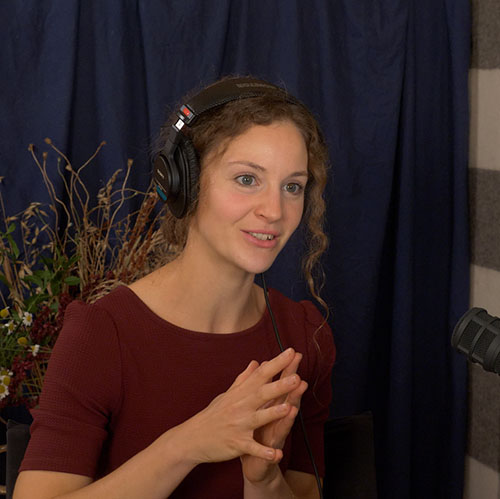Bio-hydrogen – From Plant Waste to Hydrogen Gas!
We’re learning about the developments in biodigestion technology that are offering fast yields of purified hydrogen gas.
An Interview with Dong Xiao, researcher at ‘China University of Mining & Technology’.
Season 2
Episode 12.
Published on 27th June 2023
Interview With:

Dong Xiao
Researcher - China University of Mining & Technology
Do You Have Any Questions?
Let me know in the comments below. I’ll look to create or link to resources above that cover any common questions asked.
Watch the Series of Mini Intro Animations!
In this interview I’m joined by Dong Xiao to explore his work within the research and development of a stable production method for obtaining purified hydrogen gas out of waste plant matter.
Episode Links:
Connect with Dong via email:
xd (@) cumt.edu.cn
[Remove the brackets and spaces around the @]
Show Notes:
It’s fairly well known that methane can be produced from the process of biodigestion; where the activity of microbes consuming organic matter has an output of gas that can be contained and then utilised.
Prior to his focus on hydrogen Dong was researching the short comings of bio-methane. It’s a process that’s extremely inefficient due to the slow speed of digestion and the amount of material that just doesn’t get used up.
So with a specialist understanding of microbial groups Dong and his team have worked on developing a process of digestion that is directed towards yielding hydrogen instead.
The efficiency increase is astounding, obtaining gas from the entire volume of plant matter within hours rather than months!
It’s offering huge potential as a source of renewable energy that also quite excitingly can play a role in a circular economy, as biproducts from the gas production can go on to be used as valuable materials.
It is however a far more complex technology than producing methane and requires very fine tuned control and usage.
Dong is sharing insights and an overview into his work here as he is very much up for open collaboration and partnership to ensure that this technology can be continually developed within a range of applications across the globe.
Navigate Using the Timestamps:
00:00 – Introduction
03:28 – Background to the research
05:50 – The activity of microbes
08:36 – Optimising to output hydrogen instead of methane
15:36 – Speed comparison, hydrogen vs methane
17:30 – Cost comparison, hydrogen vs methane
19:41 – Complexity comparison, hydrogen vs methane
20:28 – Comparing bio-hydrogen to other hydrogen production methods
26:35 – The preferred types of plant matter to use
30:07 – Using fibre by-products within construction materials
33:09 – Reusing the captured CO2
35:14 – Feeding soils with the organic acid by-product
36:43 – What scale of production does this suit?
43:24 – And what about storing the hydrogen?
47:09 – Collaborating across the globe
Previous Episode:
Evolving The Local Food System – With Four Lincolnshire Guests
Watch the Animations!
I’m creating short digestible videos to help illustrate some of the key concepts that we’re exploring!
The Latest Animation:
What is Regenerative Agriculture?
Listen On Your Favourite Outlet!


Helen Fisher
The Host
I take a very holistic view of the world and find enormous hope when we expand our thinking outwards and consider our issues as interconnected.
So it’s a huge delight for me to have the opportunity to speak with so many varied personalities here.
I hope you’ll enjoy learning along with me as my guests allow me to pick their brains on the diverse topics explored by this project!



0 Comments